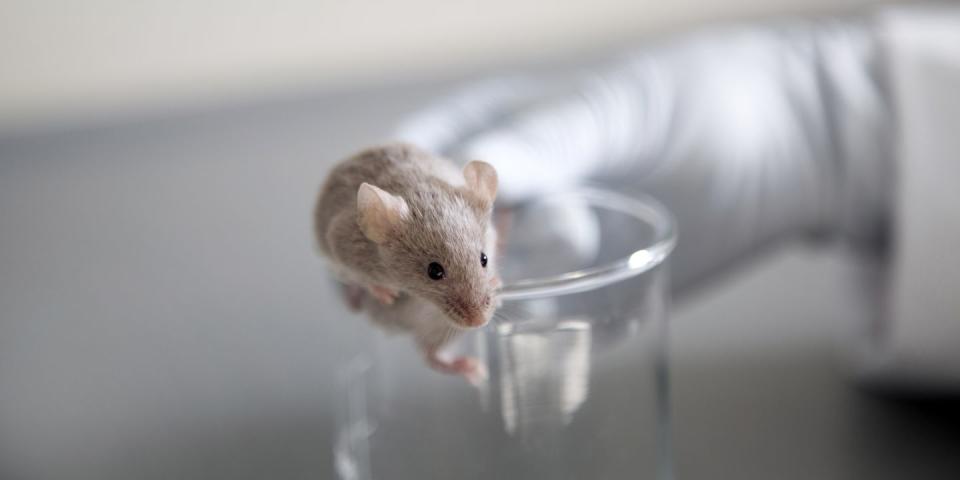Scientists Implanted Tiny Human Brains Into Mice

Scientists at the Salk Institute implanted lentil-sized human brain organoids into the heads of mice, then closed it with a transparent window. The mice looked and behaved like ordinary mice, while supplying blood and nutrients to keep human brains developing for months.
Researchers created the human cerebral organoids to study schizophrenia, but the technique could be used for much more in the future, like serving as cortical repair kits for people with brain injuries or developmental problems. Scientists created the first human brain organoids from stem cells in 2013. Since then, "scientists have gotten them to form structures like those in the brains of fetuses, to sprout dozens of different kinds of brain cells, and to develop abnormalities like those causing neurological disases," explained Stat News. Researchers hope the organoids will help demonstrate how the human brain develops normally and when problems arise.
Previously, human organoids didn't last longer than five weeks, when nutrients and oxygen could no longer reach their innermost cells. Scientists grew brain organoids in lab dishes for up to 50 days, then took out a tiny bit of tissue from mouse brains to make room for the new implants. Scientists covered the transplant with a transparent window, and some 80 percent of the implants took. Within two to 12 weeks, the organoids were receiving nutrients and oxygen from a blood vessel network, and sprouting new neurons (including some found in very specific regions of the human cortex). Implanted into mice, the organoids survived up to 233 days, with the same structure and cell maturation of a newborn.
The experiment does raise bioethical concerns: would the human brain organoids change a mouse's consciousness or identity? Researchers of this study, at least, found that the lab mice with tiny human brains seemed no different than standard lab mice. When researchers gave mice a memory test, the mice with human brain implants made fewer mistakes, but by day two, they'd reverted back to regular mice brain status.
Source: Stat
You Might Also Like

